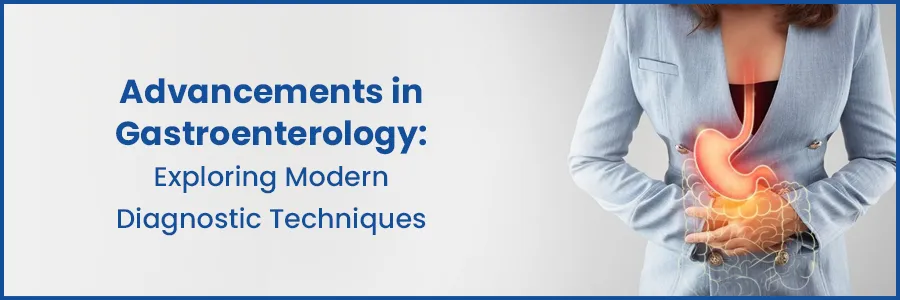Categories
- Cardiology 84
- Dermatology 45
- Endocrinology 33
- ENT 16
- Fertility 190
- Gastroenterology 78
- General-Medicine 81
- Gynecology 80
- Hematology 19
- Infectious-Diseases 33
- Neurology 52
- Oncology 34
- Ophthalmology 23
- Orthopedics 69
- Pediatrics 31
- Procedure 23
- Public-Health 144
- Pulmonology 59
- Radiology 8
- Urology 68
- Wellness 161
- Woman-and-child 77

Gastroenterology: Diagnosis and Treating Gastrointestinal Disorders
Gastroenterology is a specialized field of medicine that focuses on the diagnosis and treatment of disorders affecting the digestive system, including the gastrointestinal tract, liver, pancreas, and gallbladder. As a medical professional, it is crucial to have a comprehensive understanding of the various diagnostic tests and treatment options available to provide the best possible care for patients with gastrointestinal (GI) disorders.
Secure your health with a second opinion. Make informed decisions and book your appointment today!
Get A Second OpinionDiagnostic Tests for Gastrointestinal Disorders
Accurate diagnosis is the foundation for effective treatment in gastroenterology. There are several diagnostic tests available to help healthcare providers identify the underlying cause of GI symptoms:
- Physical Examination: A thorough physical examination, including abdominal palpation and auscultation, can provide valuable information about the patient's condition.
- Blood Tests: Blood tests can help detect inflammation, infection, or other abnormalities that may be contributing to GI symptoms.
- Endoscopic Procedures: Endoscopic procedures, such as esophagogastroduodenoscopy (EGD) and colonoscopy, allow healthcare providers to visually examine the upper and lower GI tract, respectively, and obtain tissue samples for biopsy if necessary.
- Imaging Tests: Imaging tests, including X-rays, computed tomography (CT) scans, magnetic resonance imaging (MRI), and ultrasound, can provide detailed images of the GI tract and surrounding organs.
- Functional Tests: Functional tests, such as manometry and pH monitoring, can assess the motility and acidity of the GI tract, helping to diagnose conditions like gastroesophageal reflux disease (GERD) and esophageal motility disorders.
- Breath Tests: Breath tests, such as the hydrogen breath test, can help diagnose conditions like lactose intolerance and small intestinal bacterial overgrowth (SIBO).
- Stool Tests: Stool tests can detect the presence of blood, parasites, or other abnormalities that may indicate GI disorders.
Gastroenterology Treatment Options
Once a diagnosis has been made, healthcare providers can develop a personalized treatment plan based on the patient's specific condition and needs. Treatment options in gastroenterology may include:
- Medication: Medications, such as antacids, proton pump inhibitors (PPIs), and antibiotics, can help manage symptoms and treat underlying conditions.
- Dietary Changes: Dietary modifications, such as eliminating trigger foods or following a low-FODMAP diet, can help alleviate symptoms in patients with conditions like irritable bowel syndrome (IBS) or food intolerances.
- Lifestyle Changes: Lifestyle changes, such as stress management techniques and regular exercise, can help improve overall digestive health and well-being.
- Endoscopic Procedures: Endoscopic procedures, such as dilation, stent placement, and ablation therapy, can be used to treat certain GI conditions.
- Surgery: In some cases, surgery may be necessary to treat severe or complex GI disorders, such as colorectal cancer or inflammatory bowel disease (IBD).
Conclusion
Advancements in gastroenterology have paved the way for a new era of precise and patient-friendly diagnostic techniques. From capsule endoscopy to functional MRI, these innovations are reshaping the landscape of gastrointestinal care, making diagnoses more accurate, treatment more effective, and the patient experience more comfortable. As medical technology continues to evolve, so too does our ability to understand and address gastrointestinal disorders.
Ready to take control of your health journey? Book your appointment now and start your path towards wellness today!
Book an AppointmentFrequently Asked Questions
Modern diagnostic techniques in gastroenterology refer to advanced medical technologies and methods used to visualize and diagnose gastrointestinal disorders with greater precision and less invasiveness.
A gastroenterology procedure is a medical test or treatment used to diagnose or treat digestive system conditions, such as endoscopy or colonoscopy.
Gastrointestinal symptoms can be managed with medications, dietary adjustments, lifestyle changes, and sometimes medical procedures, depending on the condition and symptom severity.
Diagnostic tests for gastrointestinal disorders include endoscopy, colonoscopy, capsule endoscopy, CT scans, and MRIs, which help detect issues in the digestive tract.
They use a combination of medications, dietary and lifestyle advice, and procedures like endoscopy to manage and improve digestive health.

Categories
- Cardiology 84
- Dermatology 45
- Endocrinology 33
- ENT 16
- Fertility 190
- Gastroenterology 78
- General-Medicine 81
- General 6
- Gynecology 80
- Hematology 19
- Infectious-Diseases 33
- Neurology 52
- Oncology 34
- Ophthalmology 23
- Orthopedics 69
- Pediatrics 31
- Procedure 23
- Public-Health 144
- Pulmonology 59
- Radiology 8
- Urology 68
- Wellness 161
- Woman-and-child 77